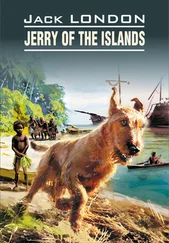Kelpers
one by one until they told me the truth, and that, being of no further use to me, he
would be next. He conveyed my reply to them, stammering over the translation, and I heard them gurgling in their dialect and glancing furtively at me. The tongue-talker took a long time to translate what I said and, sensing that he was concealing something from me, I shook him until he talked. He did so post-haste and his story has had such a powerful grip on my imagination that I have been able to think of nothing else ever since. The Islanders, so it seems, have been trading for centuries with smugglers from the mainland, who know the secret sea routes dating from colonial times: they bring them the most advanced products (the true native technology has barely advanced beyond the stage that we know as the Stone Age: not even a simple steel knife can they manufacture by themselves), and in return, the Islanders … — and here he fell silent. When I pressed him, he confessed the reasons for his reticence. He thought it pointless to fill my head with absurd legends. ‘All primitive cultures have such myths of great treasures, sir,’ he added. I shook him until he talked. ‘What do I care about your opinion, fool, tell me what treasure they’re talking about!’ I screamed at him. ‘The
Kelpers
,’ stammered the tongue-talker, ‘they claim that in the centre of the island, many
miles
(1.6km) distant, an incalculable treasure is to be found, and that they take from it what they need to barter. They say they are descended from those who arrived from the North, bringing the treasure to the Islands, more years ago than can be counted on the fingers of all the inhabitants’ hands. The word they repeat,
ing-land
, seems to be a corruption of the original
in gold land
, or to give it the name by which it has been called for centuries: El Dorado.
31st May 1982
— On the arm of the old man with bushy whiskers, I glimpsed a strange tattoo, which seemed to display a heraldic armadillo rampant, and at night the memory of it would not cease to work on me, as if it concealed some vital secret or message. Intrigued, I urged the tongue-talker to ask him what it signified. They spoke for a long time and, when I began to get impatient, the tongue-talker told me what he had learned. The treasure, so it seems, had been brought from the mainland in colonial times, concealed inside the shell of a giant armadillo. As I listened to him, I felt my heart beat faster: the size of those animals is comparable to a large chest; the value of the treasure had to be incalculable. The tattoo, he went on to explain to me, was in some way related to the location of the treasure: just as we charted the immeasurable sky with our constellations, these people drew their terrestrial maps using human and animal figures; and rather than trace them on parchment, which might be spoiled, or stone, which might be broken, they recorded them in the most secure of places: their own bodies. Thus, there was no way to lose one’s way while every father recorded on the body of every son the route to the treasure on which depended the material and spiritual survival of all the
Kelpers
.
The story of the armadillo and its treasure began in 1806, during the first English invasion of Buenos Aires …
What followed were the pages telling the Legend of the Cordobese Armadillo, which I’d already read. My veins were bubbling with intuition and, unable to contain myself, I dialled Tamerlán’s number.
‘Félix. What do you want.’
‘Just one question. Did your son speak good English?’
‘Word-perfect. What’s wrong? I thought we were done with you. If you’ve got something to tell me …’
‘Nothing for the time being.’
‘We’ve found incontrovertible proof that he got back from the war. That he’s alive and possibly very close. If you’ve found out something that’ll help me to find him …’
‘It’s about something that happened to him in the Islands.’
‘I’m not interested. My son will tell me all about it personally when I find him. Goodbye.’
I went back to my reading.
1st June 1982
— We feel the absence of provisions more with every passing day, though the morale of the troops continues to be high. The worsening of the living conditions tempers the spirit of the strongest and breaks that of the weakest: unlike my men, the natives are beginning to show all the symptoms of degradation. A fortnight is all it has taken to turn the idyllic community of brothers into a horde of surly and isolated beings, who barely speak among themselves, or wash, or shave, or change their clothes. The only thing they seem concerned about is food: they have become dreadfully demanding, and the lowliest private need only enter for the phrase to rise up
from all points, repeated like a litany:
Give us food, give us food
They repeat this in every tone possible, tilting their heads to one side as birds do to observe the effects of each on our faces, and after
giveusfooding
most eagerly, but in vain, they would by a simple artifice point to their young women or little children, as much as to say, ‘If you will not give it me, surely you will to such as these.’ This is as far as their deep-seated communism extends: their empty stomachs always remind them that they are never sated by their neighbour’s fill.
2nd June 1982
— A technical problem that had disabled the Blowpipe missile-launcher was solved in a manner little short of miraculous. An officer from R5 approached, leading by the arm a soldier who was able to recite the instructions manual from cover to cover. Questioned about his astonishing feat of memory, he replied: ‘I never forget anything I have read once. Test me if you do not believe it.’ So test him I did. I ordered Lieutenant Trejo to bring me a copy of the
Malvinas Gazette
; the soldier leafed through it superficially and handed it back to me. ‘Shall I begin?’ he asked me, mildly defiant, and without waiting for an answer, ‘La Gaceta Argentina Year One Issue One creation Puerto Argentino 8th May 1982 by order of the Joint Military Commander of the Islas Malvinas Brig Gen D Mario Benjamín Menéndez La Gaceta Argentina was created in this capital Padre Father Salvador Santore OP being appointed as editor of the same and as subeditor Captain D Fernando Orlando Rodríguez Mayo Press Officer of La Gaceta Argentina’s Military Editorial
Board has grounds to cover an informative need among the members of the Armed Forces consequently our first objective will be to report the truth that comes from the real and gives a new historical and social meaning to these Malvinense lands falsity in information creates absurd or imaginary illusions on the contrary informative news-broadcasting cleanses our horizons and maintains in us the virile alert of the just and noble light that we have lit and must not …’ Before he reached the end, I had reached my decision. At this very moment, as I write, I am dictating these lines to him, after having made him read and memorise in its entirety every page of my diary, a feat that took him not above two hours. I shall now destroy it to prevent the risk of its falling into enemy hands. The mind of Private Emilio Beltrán shall hold every word of it, and no one shall be able to read it without my permission.
4th June 1982
— I heard voices last night. They spoke to me with utter clarity. I awoke in the southern silence, amidst the sleeping bodies of my growling men, with the words ‘Abandon the school!’ whispered in my ear. Cursing and kicking them, I forced them to wake up and herded them into the foxhole seconds before the naval bombardment reduced the school to rubble. From that moment on no one dared call into doubt my visionary powers (‘God’s radar’ they have taken to calling me), and when the following morning I drew a line in the earth and planted a firm boot on either side, they all understood that the moment to choose had come.
Читать дальше











